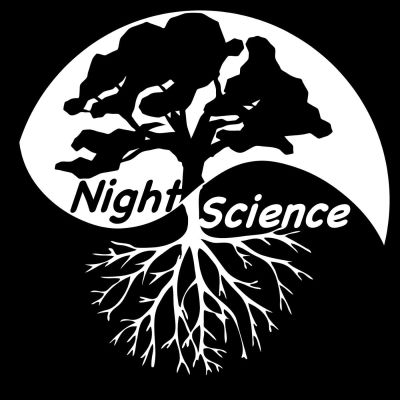Where do ideas come from? In each episode, scientists Itai Yanai and Martin Lercher explore science's creative side with a leading colleague. New episodes come out every second Monday.
http://night-science.org
Gesamtlänge aller Episoden: 1 day 12 hours 30 minutes
episode 15: Stephen Wolfram is the Worldly Scientist
Can you think of another big company CEO that does basic science? Stephen Wolfram is the CEO of Wolfram Research – the company that developed Mathematica and Wolfram Alpha – but most fundamentally he has a deep commitment to figuring out the nature of reality...
episode 14: Laurence Hurst and the slime mold model of discovery
Laurence Hurst is a professor of Evolutionary Genetics and the founding Director of the Milner Centre for Evolution at The University of Bath...
episode 13: Edith Heard and the feeling for the system
Edith Heard is a Professor at the Collège de France and the Director General of Europe’s “CERN for biologists”, the European Molecular Biology Lab (EMBL). In this episode, Edith explains how she gets ideas when she’s out of her comfort zone and being challenged, and how in her youth she would go to the piano whenever her brain needed time to solve a hard math problem...
episode 12: Ewan Birney and the battle scars of discovery
Ewan Birney is the deputy director general of the European Molecular Biology Lab (EMBL) and co-director of the European Bioinformatics Institute. In his research, Ewan combines his training in biochemistry with computer science, which made him one of the heroes of the human genome project...
episode 11: Paola Arlotta and science as a walk in the dark woods
Paola Arlotta is a developmental neurobiologist and a professor at Harvard. She studies how the most complex organ in the human body (in the world? in the universe maybe?) comes to be: the brain (!). How does it develop from just a bunch of cells? Paola is also the Chair of her Department of Stem Cell and Regenerative Biology, where she takes particular care about the nurturing of the next generation of scientists in her field...
episode 10: Marty Martin and Art Woods on science podcasting
In this special, we talk about podcasting with the two hosts of the Big Biology Podcast (https://www.bigbiology.org), Marty Martin – professor of disease ecology at the University of South Florida – and Art Woods – professor of physiological ecology at the University of Montana. We had a great time discussing our respective podcast experiences, trading tips and reflecting on our passion for science communication and the ways that it has impacted our own research...
episode 9: Alfred Russel Wallace and night science by candlelight
What was the creative process of Alfred Russel Wallace? In this séance, we channel the legendary self-taught evolutionary biologist, founder of the field of biogeography, and co-discoverer of natural selection. Mr. Wallace (as he insists to be called) told us how he did night science by candlelight during long and lonely nights on his travels in the tropics, and how he prefers to ponder the big questions...
episode 8: Zak Kohane and the abstraction of data
Isaac (Zak) Kohane is the Chair of the Department of Biomedical Informatics at Harvard Medical School. In this episode, Zak talks with us about how medicine, at its core, is information processing...
episode 7: Jim Collins and the technology-free Friday
Jim Collins is Professor of Biological Engineering at MIT. In this episode, he talks with us about his radical switch of fields in the early 2000’s, when he essentially founded the field of synthetic biology. Jim’s creative process includes ‘storing content’ about a particular problem; committing a portion of each day to reflect on it, even if this might often feel like wasting time; and then bouncing ideas around in open discussions with colleagues...
episode 6: Caroline Bartman and the flash(cards) of inspiration
Caroline Bartman is a Postdoctoral Fellow in Princeton’s Chemistry Department, and she is about to start her own lab at the University of Pennsylvania. Caroline’s research focuses on how our metabolism changes in response to cancer and to viral infections. In this episode, Caroline explains how she has developed to become a creative scientist...
